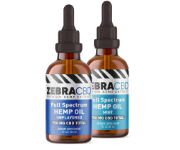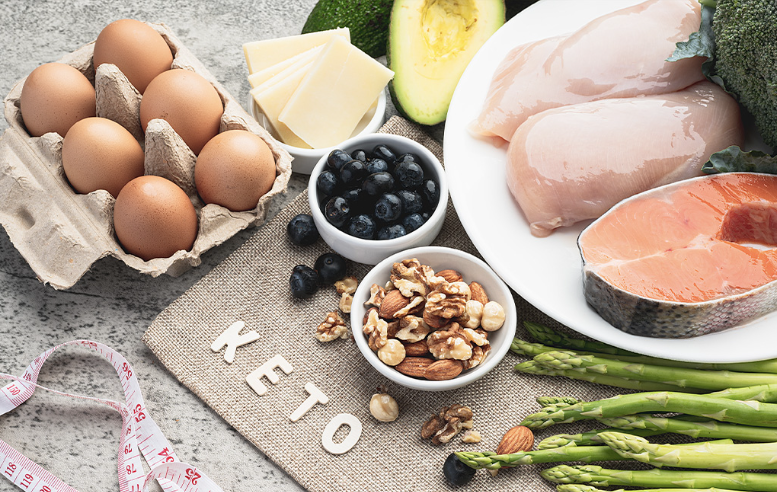
The hemp plant is a powerhouse of cannabinoids — naturally-occurring compounds that can interact with our bodies to regulate and influence certain bodily processes, such as sleep, appetite and physical sensation. These cannabinoids include cannabidiol, which is commonly called CBD.
To create CBD oil, the essential oils of the hemp plant are extracted and turned into liquid form. And since its federal legalization in 2018, CBD oil is widely available throughout the United States — and widely popular, too. It’s believed that CBD oil may support relaxation, mental health and sleep cycles.
Ingesting CBD oil orally or sublingually can provide a range of potential therapeutic benefits.
With all that said, what is the most effective way to take CBD oil products , and what happens if you swallow CBD oil? Follow along as we follow CBD’s journey through the body.
What Is CBD Oil?
First things first: What exactly is CBD oil?
CBD oil is a natural oil derived from the hemp plant — a type of cannabis plant that’s classified as having no more than 0.3% tetrahydrocannabinol (THC). Unlike THC, CBD oil does not produce psychoactive effects, meaning you’re unlikely to experience:
- Heightened sensory perception
- Altered perception of time
- Increased appetite
- Silly, goofy moods
Rather, it’s believed that CBD may work with the body to keep it balanced and functioning properly. In other words, it can help maintain homeostasis.
So, how exactly does CBD oil make it from the hemp plant to your body? Firstly, manufacturers implement an extraction process. CBD oil can be extracted from the hemp plant using several different methods, which include:
- Carbon dioxide extraction – Using high pressure and low temperature, CBD is isolated and preserved to maintain its purity levels. Essentially, the gas elements spread throughout the plant matter and the liquid elements extract the CBD compounds. The plant material separates, leaving full spectrum CBD oil, a type of CBD that contains all of the compounds found in the hemp plant, including THC, in addition to CBD.
- Solvent extraction – Using a solvent like butane, ethanol or hexane, processors strip the cannabinoids from the hemp plant, as well as the plant’s chlorophyll, which may lead to a more bitter-tasting oil. The solvent then evaporates, leaving behind pure CBD.
- Olive oil extraction – The hemp plant is heated to a certain temperature, then olive oil is added to separate the CBD from the plant material.
- Steam distillation – Hemp plant matter is added to a distillation tank where water and heat combine to produce steam that carries the CBD oil to the top of the container. It’s then distilled to separate the oil from the water, resulting in full spectrum CBD oil.
The CBD product is then diluted with a carrier oil to improve its bioavailability and make it easier to consume. Carrier oil products can include:
- Coconut oil
- Hemp seed oil
- Olive oil
- Avocado oil
- Grape seed oil
- Sunflower oil
Once the CBD oil is tested, packaged and distributed, consumers can purchase the product from health markets, dispensaries or specialty CBD stores, depending on the laws and regulations of the state they live in. CBD oil is available nationwide through online retailers, as well.
The CBD product you choose will largely depend on personal preference, as well as any dietary restrictions or allergies you may have. However, you should always choose a high-quality oil that’s free from unnecessary additives or contaminants to ensure you’re giving your body the best possible experience.
Do You Swallow CBD Oil?
You can use CBD oil in a variety of ways — topically, orally or sublingually. Let’s explore:
- Topically – You can apply CBD oil, as well as CBD balms, creams or lotions, to areas of the skin to relieve topical discomfort, itching or dryness. It may also relieve feelings of physical discomfort. That said, it may be best to opt for a topical CBD rather than CBD oil when applying it directly to your skin. Oftentimes, CBD oil is not easily absorbed by the skin, and you may not feel its full desired effects when using CBD oil alone.
- Orally – Instead of opting for oral products like CBD edibles or CBD gummies, many people choose to drop CBD oil on top of their tongue and swallow the CBD oil immediately. When consumed orally, CBD must travel through the digestive system before it's absorbed into the bloodstream through the small intestine. As such, it may take a while to feel the effects of the CBD, depending on your metabolism, the type of CBD being used and the CBD dosage .
- Sublingually – For fast-acting CBD, opt to ingest CBD oil sublingually. Rather than dropping the oil on top of your tongue and swallowing immediately, you’ll instead drop your dose under your tongue, close to where the sublingual gland is located. Let the CBD oil sit for at least 60 seconds under your tongue. If you’re wondering, do you swallow CBD oil after holding it under your tongue, the answer is yes! Holding the oil under your tongue allows it to absorb directly into your bloodstream, bypassing your digestive system completely. Once you’ve given it enough time, you can swallow CBD oil as you would when ingesting it orally.
All that said, it’s certainly safe to swallow CBD.
But, you’ll want to ensure you’re using a high-quality CBD product. More specifically, look for a CBD oil that comes with a Certificate of Analysis (COA). A COA will:
- Identify the third-party lab(s) in which the product was tested
- Detail the cannabinoids present and their levels
- Indicate any harmful contaminants, such as heavy metals, pesticides or residual solvents
Consumers can look at the COA prior to purchasing a CBD oil to verify that the COA matches the product’s label. If a CBD product does not have a COA, it should likely be avoided as there’s no way to verify its quality or safety.
Why Take CBD Oil?
Ingesting CBD oil orally or sublingually can provide a range of potential therapeutic benefits, as CBD is believed to interact with the body’s endocannabinoid system (ECS).
The ECS regulates many of the body’s processes in relation to sleep, cognition, appetite and physical responses. When CBD enters the bloodstream, the cannabinoids may interact with the cell receptors found in the ECS to help maintain your overall health and wellness.
Consequently, CBD oil may help to regulate the following:
- Mood – After a long and stressful day, it can be difficult to wind down and leave the day’s stressors in the past. Taking a few CBD oil drops may act as a mood enhancer and help ease feelings of nervousness or uncertainty throughout the day.
- Physical discomfort – Exercise-induced injuries, cramps or aches can put a wrench in your day-to-day life, but CBD oil may help to reduce physical discomfort.
- Inflammation – When ingested, CBD can help regulate immune and inflammatory responses to mitigate aches associated with exercise.
- Digestion – Similarly, CBD may help to reduce inflammation in the stomach and may benefit the gut.
- Sleep – Taking CBD oil before bed may increase the amount of time you sleep and reduce the amount of times you wake up throughout the night. This effect may also be tied to CBD’s ability to ease feelings of restlessness.
How Much CBD Oil Should You Take Daily?
It’s generally recommended that people take about 20 to 40 mg daily when first starting CBD. However, the amount you take will greatly depend on your body composition, as well as the symptoms you’re experiencing.
To ensure you find a dose that works for your body and to prevent a potential CBD overdose , start slow. If you don’t feel the effects within the first week, it’s okay to increase your dosage by 5 mg a week until you achieve your desired effect.
Types of CBD Oil Available On The Market
There are three types of CBD oil available in the United States, and they can all be swallowed safely. These include:
- Full spectrum CBD oil – Per the 2018 Farm Bill, CBD can contain THC, although it cannot contain more than 0.3% of the cannabinoid. Full spectrum CBD oil contains each of the cannabinoids present within the hemp plant, as well as terpenes and flavonoids. These compounds work together in what’s known as the “entourage effect,” which may increase CBD’s potential therapeutic benefits.
- Broad spectrum CBD oil – Like full spectrum CBD, broad spectrum CBD oil contains all of the compounds found in hemp, except for THC. As such, broad spectrum CBD may be less potent than full spectrum CBD.
- Isolate CBD oil – Isolate CBD is a crystalline form of CBD. During the extraction processes, all other compounds of the hemp plant, including terpenes, flavonoids and other cannabinoids, are removed. It’s an ideal choice for those looking to take higher, more concentrated amounts of CBD oil throughout the day.
Other Ways to Take CBD
While swallowing CBD oil is one way to use it, there are several other methods to incorporate CBD into your routine, each offering unique benefits:
- Edibles -Gummies, chocolates, or beverages infused with CBD are convenient, tasty, and discreet options for consuming CBD.
- Topicals - CBD balms, creams and lotions are designed to be applied directly to the skin, making them ideal for targeting localized discomfort or supporting skin health.
- Capsules - CBD capsules are pre-measured and easy to incorporate into your daily supplement routine, offering precise dosing without any flavor.
- Inhalation - CBD can be inhaled through vaping or smoking CBD vape oil, which allows for quick absorption into the bloodstream via the lungs.
Find Premium CBD Oil With Zebra CBD
So, do you swallow CBD oil? Yes. It’s safe to swallow CBD oil when consuming it orally and sublingually — just as long as you let the oil sit under your tongue for a full minute before swallowing.
To ensure you’re ingesting only top-quality CBD oil, purchase from brands that carry premium CBD oil products and other types of CBDs and an accessible COA. At Zebra CBD , we offer an array of CBD products made with organic hemp extract to support your well-being, including premium CBD topicals and CBD gummies for sale. Each of our CBD products is tested by third-party labs and assessed for potency and contaminants.
When it comes to CBD, Zebra sets the standard. Guide your CBD journey with more answers to all your questions, from “what is oral CBD?” to “does CBD oil get you high?" with our expert blog.
Source:
- Everyday Health. Gut Check: Does Marijuana Use and CBD Affect the Gut? https://www.everydayhealth.com/digestive-health/gut-check-does-marijuana-use-and-cbd-affect-the-gut/
- Healthline. 6 Benefits and Uses of CBD Oil (Plus Side Effects). https://www.healthline.com/nutrition/cbd-oil-benefits#mental-health
- Medical News Today. Types of CBD: What to Know. https://www.medicalnewstoday.com/articles/types-of-cbd
- Healthline. CBD Dosage: Figuring Out How Much to Take. https://www.healthline.com/health/cbd-dosage
- Medical News Today. How often can a person use sublingual CBD? https://www.medicalnewstoday.com/articles/how-often-can-you-take-cbd-oil-under-tongue










